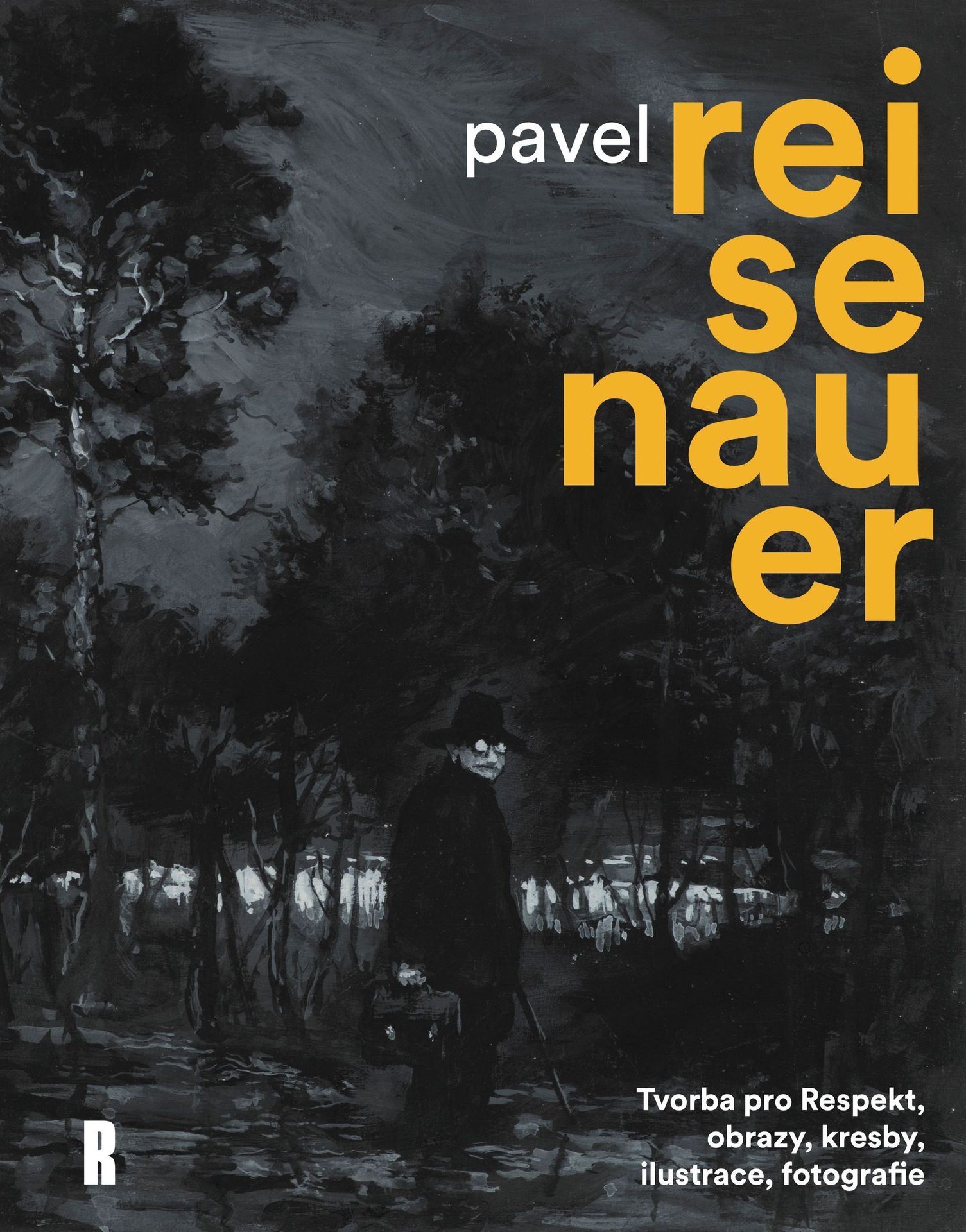Translated by Lani Seelinger
Tomáš Průsa, 35, hesitated for about three seconds. Seven years ago, when he went to the pub for a beer with his party colleagues after his official entrance interview and the conversation turned to family, he could have dodged the unimportant issue of a “better half.” But then he realized that he didn’t want to hide anything, and he calmly said that he had a long-time boyfriend. “Everyone took it completely normally,” says Průsa, once the main manager of the party and now a member of the board. His colleagues know about his homosexuality this summer, as he’s been appearing in the “coming out series” now in connection with the Prague Pride festival, where they introduce gays and lesbians in the ranks of the Green Party on Facebook. “If we had the same rights as the majority of society, then this would be a private issue for every politician,” says Průsa, explaining why he considers it important that gay politicians publically announce their sexual orientation. “But we don’t have the same rights, so it’s my duty to claim allegiance to my sexuality and, as a politician, try and change things.”
Petr Horálek, 36, didn’t hesitate much either. A member of the Czech Social Democratic Party (ČSSD) since 2001, he never hid the fact that he was gay, and he had much the same reasoning as Průsa – he didn’t want to hide anything from his colleagues. The real test of their tolerance came last fall, when he ran for the position of head of the Prague 4 party office. In his nomination speech, he once again drew attention to the fact that he was gay and that he and his partner had entered into a registered partnership four years before. “I was waiting for a negative reaction, but none ever came,” says Horálek, who gained 70% support in a secret vote. Theoretically, further problems could have come from the side of colleagues and families in the fourth district, where the Board of Education is managed. “But no one addresses it at all,” says the social democrat. “People worry more about having enough kindergartens in the fourth district or about having compatible classes than about whether or not someone’s gay.”
However, Tomáš Průsa is a member of a party not in parliament with the support of three percent of the population. And although Petr Horálek is a part of a big party, he still works on the local level, plus he’s in the tolerant city of Prague. The Czech Republic is still waiting for its first openly gay, high-level politician, and its first openly gay athlete or businessman as well. In a country that ranks among the most tolerant states in all of Europe, this is a real paradox.
Amsterdam, Berlin, Prague
The Lonely Planet travel guide ranked Prague alongside San Francisco, Berlin, and Amsterdam as one of the ten most gay-friendly cities in the world, thanks to the “general acceptance” that gays and lesbians receive. We also have an exceptional status in the region. There aren’t any known cases of physical attacks on homosexuals, as there are not only in Russia, but also in Poland and Hungary. In the capital, they’ve been doing well with organizing the ever more successful series of Prague Pride events, and while its parallels in other Central European countries have bans from the municipal authority (Warsaw) or attacks from radical right-wingers (Warsaw and Budapest) to account for, the mayor here protects the Prague parade, and it takes place in peace. Also, seven years ago, the Paroubek government put the law about registered partnerships into place after years of debate, which has led to more than 1000 partnerships since then. The Hungarians followed in 2009, but Polish and Slovak gays and lesbians are still waiting on legislation for their unions.
This year’s poll by the Fundamental Rights Agency of 93,000 Europeans with lesbian, gay, bisexual, or transgender identity also completes this picture. According to the survey results, the Czech members of the community have problems with discrimination, violence, verbal attacks, or even just offensive jokes less frequently than the European average. To the question about whether they had experienced discrimination, some form of annoyance, or an attack because of their sexual orientation in the last year, 60% of Poles answered affirmatively, more than half of Slovaks and not quite half of Hungarians did too, while “only” 35% of Czechs did.
It is precisely in this context that the absence of open recognition a different sexual orientation in the public sphere stands out, perhaps with the exception of art. For comparison, 12 homosexual deputies represent the British conservatives in parliament; Robert Biedroń of the liberal Palikot Movement came out in Poland; Stanislav Fořt is still a member of parliament for the Freedom and Solidarity party, and Edita Angyalová was a politician before him for Robert Fico’s Smer in Slovakia. Then, in Hungary, there was Gábor Szetey, the state secretary for Gyurcsány’s government, or liberal politician Klára Ungár.
The first minister who openly admitted to his sexual orientation was Gustav Slamečka in the Fischer government, and the businessman Václav Fischer was the first among members of parliament at the end of the 1990s. Both, however, did this unintentionally. Fischer responded to an anonymous pre-election billboard alerting people to his sexual orientation, and Slamečka reacted to ex-prime minister Topolánek and labor union boss Dušek “outing” him (Topolánek said that he “easily sidesteps” like a gay, and Dušek arrived at the theory that the gay lobby controlled the Department of Transportation). While Fischer went through his coming out with ease, Slamečka recalls that there was a good bit of drama in his case. Even though his family and friends had known about his sexual orientation, Slamečka simply didn’t want to talk about his private life in the business sphere, from which he moved to politics, or in the state sphere. “It was mainly unpleasant because I was blamed for having gained some advantages because of my sexual orientation,” says the then minister, who now of course does not regret coming out.
It’s certain that even some of the members of the gay community aren’t sure if Czech gays’ and lesbians’ silence in the public space is actually for the worse. “It’s a private thing for everybody,” says the aforementioned Prague social democrat, whose simple desire to be sincere led him to his openness. “I decided that way for myself, but I don’t think that other people have the duty to act the same way.”
Other representatives of the community would definitely welcome more openness, however. “It’s their moral duty and responsibility, because that way they give a voice to the people who can’t speak for themselves” says Petr Prokopík, an anthropologist and head of the travel agency Prague4gay, about closeted gays and lesbians in the public sphere. “When you’re 13 years old and the only information that you have is from Petr Hájek saying that you’re a deviant, you need someone who will show you—and possibly also your parents—by his own example that you’re normal and that you can live a well-rounded life.” Prokopík warns about the tragic ends for gays who feel like they’re completely alone. And by contrast, other homosexuals talk about publically known examples gratefully. “Athletes, for example, are important,” says Tomáš Průsa. “It was key for me when I found out that Martina Navrátilová liked girls. I immediately said to myself that I didn’t have to be afraid of anything.”
This isn’t a family
The whole situation is a bit less comprehensible, when politicians or state officials who come out in the Czech Republic usually don’t regret their decisions and don’t have their lives diverted in any way. When Václav Fischer was already openly gay, he got 70% of the vote for Senate (albeit from a central Prague district), and after leaving the government, Gustav Slamečka crossed over to the leadership of Czech Railways Cargo, and now he heads up the Czech branch of an international consulting firm. On the contrary, perhaps the most well known gay man from this country, Jiří Hromada, has repeatedly failed in elections.
Even the current director of Prague Pride, Czeslaw Walek, still hasn’t had any problems has a high-placed official in the Cabinet Office. “And therefore I don’t understand the situation, I don’t have an explanation for it,” says Walek, shaking his head, but he nonetheless offers one explanation. Among politicians who the community “knows about,” we actually find married men, and sometimes even fathers with children. For those without wives or children, we don’t know if they’re out to their families. Another part of the explanation lies in the fact that none of the aforementioned men who successfully came out left the top level of the political party, or sport or business.
Anthropologist and gay activist Zdeněk Sloboda explains it with the fact that these parts of society are largely controlled by “dominantly masculine” men, who connect “gay masculinity” with stereotypes of effeminacy and weakness. Eventually, supporters of Slavia Praha call Sparta Praha players “a bunch of fags”, and these types of insults aren’t far from the parliament chamber either. For example, during the Topolánek government, current deputy chairman of TOP 09 Miroslav Kalousek called the deputies from the Green Party “a bunch of queers and abortionists” in a raised voice during a tense negotiation.
ČSSD senator Jiří Dienstbier claims that “a macho atmosphere reigns in political parties, where it must be difficult to admit to having a minority sexual orientation.” He had a brush with the problem himself, when he supported the possibility for homosexual couples to adopt children and found himself under sharp fire from his colleagues. They protested the exception by saying that “labeling a homosexual pair as a family is a contradiction” (Deputy Tejc) or with the argument that “homosexuality is a perversion” (Senator Lebeda).
The longstanding positions of other parties – in the case of politics – are then responsible for these stereotypes. The Civic Democratic Party (ODS) followed its founder Václav Klaus, who first as the prime minister rejected and then as the president vetoed the law about registered partnerships, and he also tolerated statements by his colleagues about homosexuality as a “deviation.” TOP 09 also inherited a similar position with a part of the base membership the people’s party, although the chairman, Karel Schwarzenberg, supported adoption rights during the presidential campaign.
Strictly speaking, the parties’ positions copy the views of their voters. Czechs are highly tolerant towards gays and lesbians, but only on certain terms, a tolerance that sociologists call “conditional” or “tolerance with reservations.” “This is really indifference instead of tolerance – we don’t care what you do, but you won’t teach our children, live next to us, or raise children,” explains Zdeněk Sloboda. “It’s no wonder, then, that on surveys only about half of the people say that they know a gay or a lesbian. How could people know, when they try to be as inconspicuous as possible?”
Text Taková zvláštní tolerance vyšel v Respektu 34/2013
Pokud jste v článku našli chybu, napište nám prosím na opravy@respekt.cz.





















